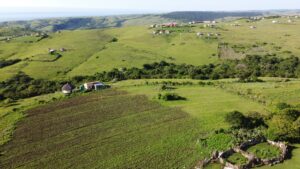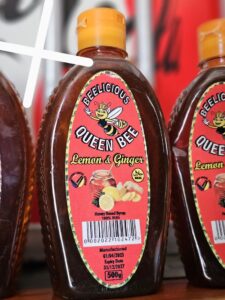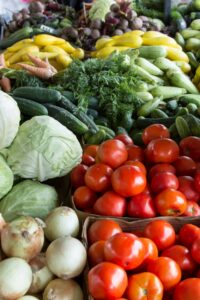Press release
‘People think that just because we are rural and poor, we are ignorant.
‘We are not ignorant, and we refuse to accept short-term, false promises of jobs and development that end up destroying our natural resources, leaving us with nothing. We have the right to say no to developments that harm our people and our environment. And we have the right to speak on, be part of, and benefit from the developments that take place in our communities. Nothing for us without us!’
These are the stirring words of Walter Steenkamp, Chairperson of the Aukotowa Small-scale Fisheries Cooperative in Port Nolloth in the Northern Cape.
Walter is one of the resonant voices speaking up about livelihoods and environmental respect in the Namaqualand and Matzikama areas of South Africa. The towns in this region are often remote, found after long and meandering, but breathtaking, drives on gravel roads. The people are warm, with a core of pure granite running right through them and a real generosity of spirit. They work a swiftly changing earth and sea, battered by the effects of climate change and challenged by illegal fishing and endless mining prospecting encroachments. To meet these challenges, they are seeking new ways to prosper and partners who genuinely want to see the success of their communities.
‘What we need is legal know-how and expertise. We need people on our side who will help us to navigate the language and legislation in order to protect our rights and our communities and allow us to claim and use the land in ways that will truly benefit our people for the long term,’ said Ilanushca ‘Noekie’ van Neel, Chairperson of the Concordia Communal Property Association (CPA).
Van Neel and her CPA have been facing a years-long battle to secure the land that was returned to them as part of the South Africa’s land reform process and guard it from mining applications and permits. ‘There must be a halt on all mining activity until all of the affected people of Namaqualand have been educated and consulted on these developments. We want to use our land for meaningful farming activities that will not result in the pollution of our ground water – which is already a very scarce resource – and the destruction of our rangelands.’
In 2022, the WWF Nedbank Green Trust, in partnership with South African National Parks (SANParks) and CapeNature, launched a project that explored interventions and opportunities together with 8 of the local communities to increase employment; boost small, medium and micro-enterprise (SMME) development; and include communities in legally benefiting from the region’s wealth of natural resources.
‘The WWF Nedbank Green Trust funded project, titled ‘Building local community capacity and sustainable livelihoods’, was piloted around the Namaqua National Park in the Namaqualand region and the Knersvlakte Nature Reserve near Vanrhynsdorp on the West Coast. The project is about understanding and learning from local communities around the 2 protected areas and working with key stakeholders in the communities to support local community development. We worked with and started to build relationships with communities and stakeholders in Kamieskroon, Hondeklipbaai, Soebatsfontein, Concordia, Steinkopf, Bulletrap, Nourivier, Leliefontein, and Komaggas in Namaqua, and Vanrhynsdorp, Vredendal, Papendorp, Ebenhaeser, Doringbaai, and Kliprand in the Matzikama area. All the communities are based inland except Hondeklipbaai, Papendorp, Doringbaai and Port Nolloth, which are coastal fishing communities,’ commented Katherine Forsythe, WWF Landscape Manager of the Northern Cape.
‘In partnership with Conservation South Africa, a long-term and highly effective player in the region, WWF also has a project focused on sustainable farming methods in the Kamiesberg region. Most of the sheep and goat farmers know the value of the environment and what it means to them as it supports their livelihoods. The work is best achieved when we layer solutions and form partnerships with key stakeholders in the landscape,’ continued Forsythe.
‘We have spent a great deal of time understanding the needs of these communities and finding ways to make our expertise and connections work for them. Our focus going in was to, firstly, learn from the local communities, understand their community dynamics, build trust through our engagements with the community structures and then work with key partners that already have a footprint in the areas, to build capacity and address some of the socioeconomic pressures plaguing the region, and we initiated several interventions to that end,’ said Azitu Fernando, WWF’s Community Conservation Coordinator for the Northern Cape Landscape.
The project leveraged resources through partnerships with government and civil society to facilitate a number of livelihood opportunities, including the following:
- Exploring biodiversity economy opportunities by developing a restoration SMME proposal to create local jobs, with funding being pursued.
- Providing training and inputs for household and community vegetable gardens with agroecology training scheduled for October and November to support vulnerable households in Matzikama and Namaqua.
- Convening learning exchanges between livestock farmers and key stakeholders to improve livestock practices and promote sustainable rangeland management.
- Supporting SANParks (Namaqua National Park) and CapeNature to reach hundreds of local youths with environmental education and stewardship activities.
- Establishing new partnerships and deepening existing ones with communities and stakeholders across Matzikama and Namaqua.
- Bringing together communities facing similar challenges to co-develop solutions and share practical ideas that benefit local livelihoods.
- Enabling local SMMEs to generate income through targeted stakeholder engagements.
‘True impact at scale cannot be achieved without trustworthy partners and that lesson is absolutely evident in this landscape. Beyond livelihoods development, we will be facilitating communications between the CPA’s and the governance structures in the region. Productive and strategic dialogue is crucial to addressing the community’s issues around infrastructure development, mining, illegal fishing, and access to markets, and we look forward to what can be achieved with the incredibly rich resources in this region when they are accessed in full consultation with the communities that own them and for the prosperity of people and planet,’ concluded Fernando.
Photo: Quintin Gellar on Pexels



